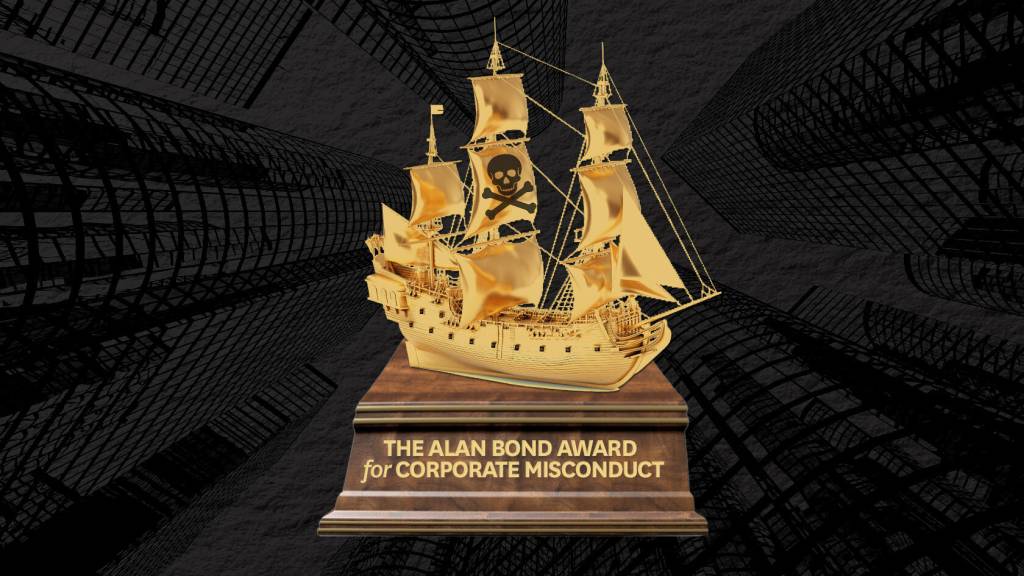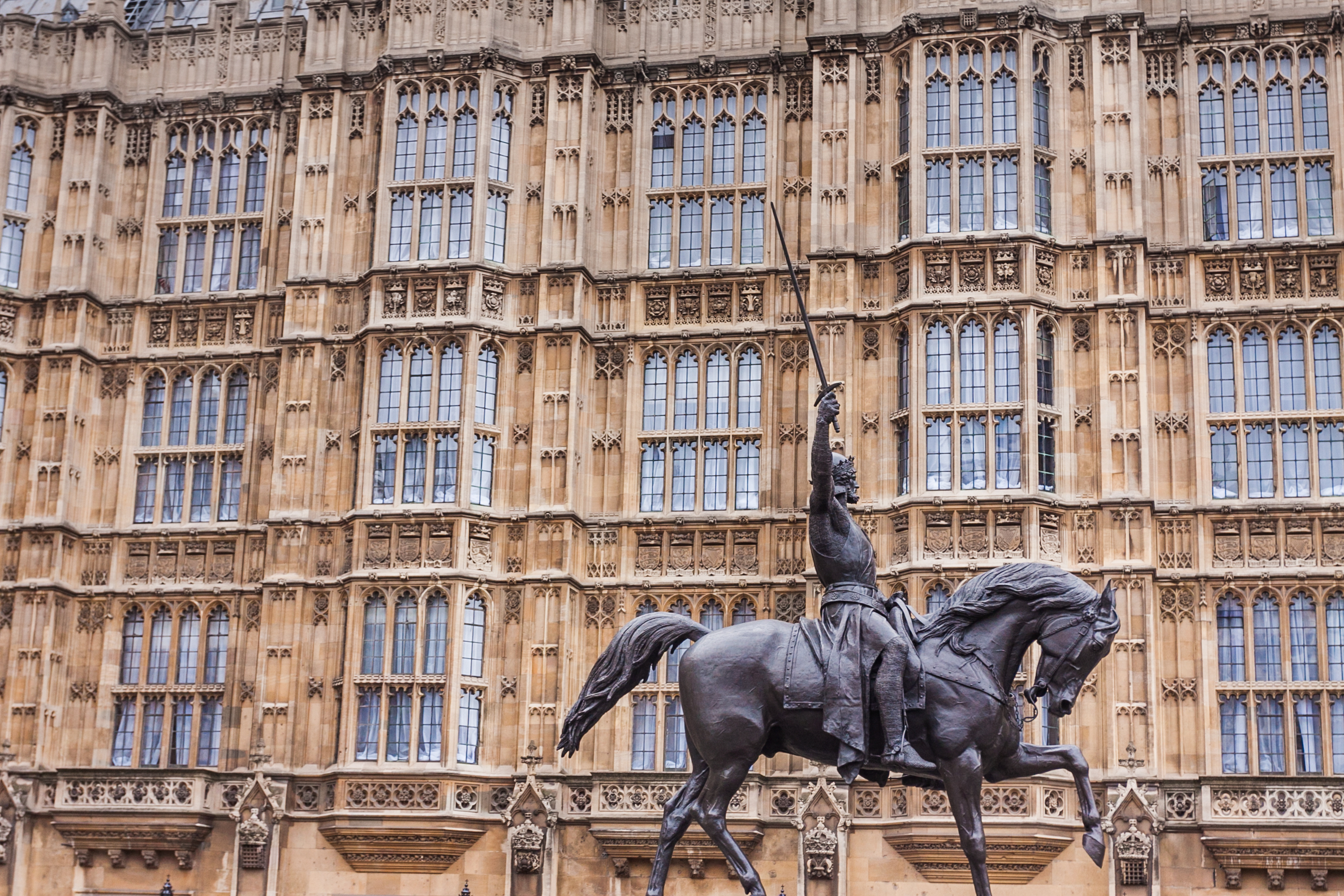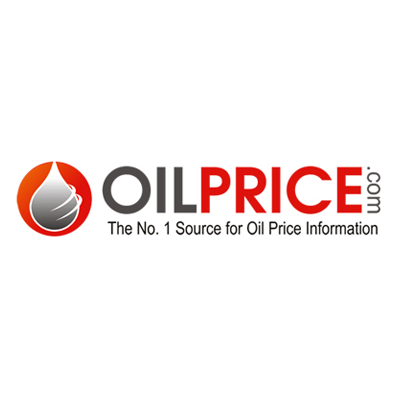By Bernard Keane
Copyright crikey

It’s been a rotten… year… well, decade, for Australian business.
No sooner did the big banks get busted by the Hayne royal commission than some of them turned around and began swindling customers again. Meanwhile our supermarket giants are gouging rip-off merchants, and the so-called “national airline” is the nation’s most complained-about company (and a by-word for contempt for its customers and workers).
Our media companies are toxic workplaces that platform Nazis and rapists, and employ war criminals. Malignant gambling companies and their media addicts continue to inflict misery on the country while a captured government stands by.
Social media companies impose systemic and structural damage on our culture and polity with impunity. High levels of concentration have seen our biggest businesses dramatically increasing their mark-ups. The list of corporate wage thieves, and the amounts owed to Australian workers, steadily increase a decade after the problem first came to light. And it’s only because the big audit and consultancy firms like PwC aren’t actually companies that they can’t be added to the toxic list.
But who is the worst of the worst? Readers will have their own views. Many will suggest Qantas, or one of the big banks, for the contempt they hold for customers forced to use them. Those trying to balance household bills might name Coles and Woolies. Others will say News Corp for its cancerous role in worsening social and political division and peddling hate. Investors who’ve done their dough on Star, or long-suffering holders of near-worthless Seven West Media shares, might have a different view.
But at Crikey we think it’s possible to objectively determine the worst company, by carefully compiling multiple criteria and then weighting them in terms of societal impact. Here are our criteria:
Environmental damage: Australia’s status as a fossil fuel superpower is built on the hard work of some of the world’s worst climate criminals — Woodside, Santos, and multinationals like Chevron, Shell and BP. We rate the damage inflicted by these oligopolists as one of the most important criteria for the worst companies, and have given it top weighting. But it’s not just for emissions — companies that enable and advocate for climate denialism, like News Corp, also get a rating.
Breaking the law: The number of Australian companies that have been found, or admitted to being, in breach of the law is remarkable. We also give this our highest weighting, but space out the scores to reflect the seriousness of the offence: Westpac’s money laundering offences that enabled child abuse are in a different league to, say, mining companies breaching minor licence conditions.
Undermining public policy: What kind of role does a company play in policy debate? Does it engage in the great corporate game of influence peddling to gain advantage for itself or its industry, at the cost of the national interest? Another top-weighting criterion, which will mean that each score is multiplied by three.
Tax avoidance: While some companies, like the big banks, or mining companies with large Australian assets, pay full freight when it comes to corporate tax, others are notorious for tax avoidance — News Corp famously pays no tax in Australia; the big tech companies still avoid tax after years of governments trying to force them to pay more; fossil fuel companies make billions from publicly owned resources while paying little if any Petroleum Resource Rent Taxes. We give this the middle weighting.
Wage theft: The majority of large companies in Australia have been guilty of wage theft at some point in the past decade — along with universities, the ABC and many small businesses and the agricultural industry. Another middle weighting criterion.
Anticompetitive behaviour: High levels of market concentration are a major problem for productivity and inflation in the Australian economy, with our lax competition laws rarely doing much to prevent big firms getting even bigger. A middle weight criterion, meaning points under these criteria will be doubled.
Damaging social cohesion: Few companies are in a position to actively undermine social stability, but this middle weight criterion recognises the capacity of media companies like News Corp and Seven to cause division and foster hate, along with gambling companies growing rich off a tide of misery in the community.
And the low-rank criteria: Important but not as important as those listed above: do the companies rely on public subsidies, do they offer poor customer service (hi, Qantas!), have they destroyed investor wealth, and do they offer poor workplace conditions.
We believe this offers a solid objective basis for deciding the title of Australia’s most awful company: it means you can’t just be a standout performer in one area of incompetence or misconduct — the truly awful firm has to be a good all-rounder. And we’ve mainly, but not exclusively, focused on the past decade. While there are some older corporate scandals that we’ve kept in mind, we’re conscious that companies that were malignant actors 20 years ago, like Telstra, no longer deserve a spot in the pantheon of villains.
We’ve run this ruler over 50 of Australia’s biggest firms — and some multinationals operating here as well. We’ll examine the industries with the worst performance tomorrow, followed by our unveiling of the inaugural winner of the Alan Bond Award for Corporate Misconduct.



